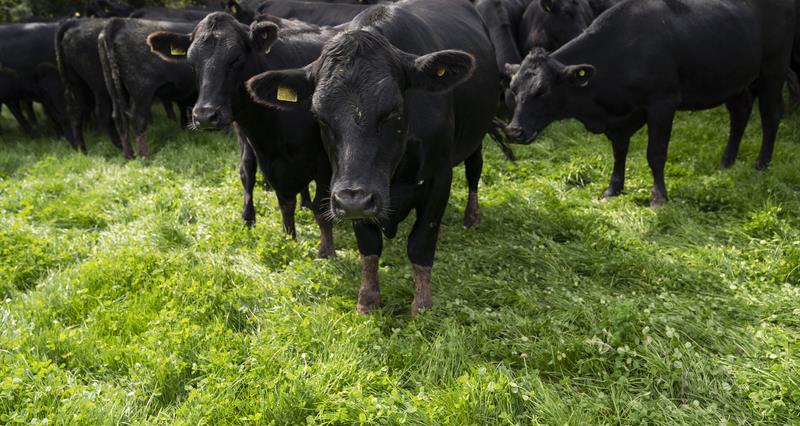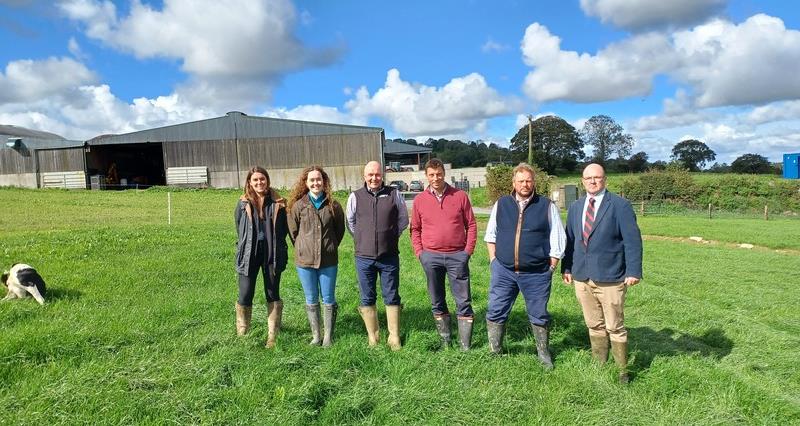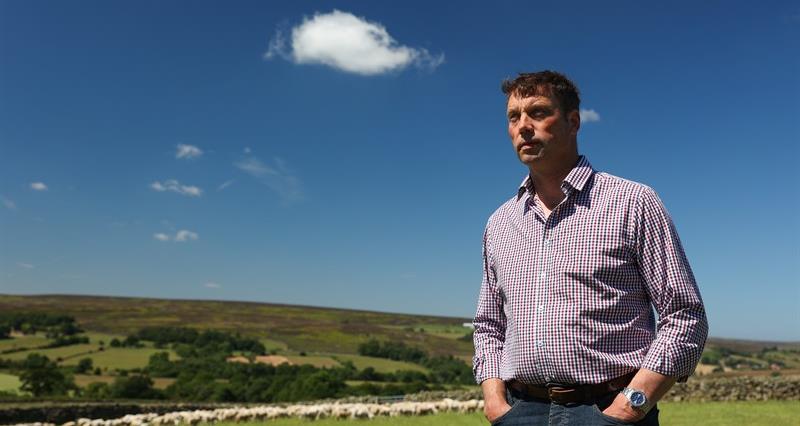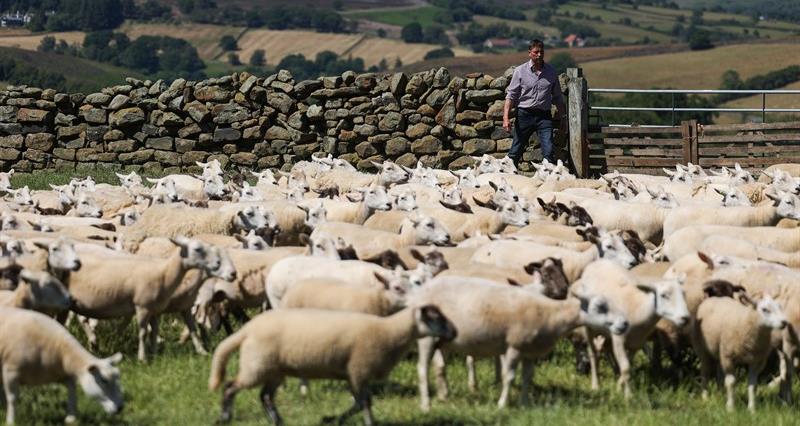On day one of our trip, we attended the National Ploughing Championships where we met with the IFA (Irish Farmers Federation) and farm assurance body, Bord Bia, and learned more about how the Irish supply chain is addressing sustainability through farm assurance and the Origin Green scheme.
How does Origin Green work?
Learning more about Origin Green, it was evidently clear that the Irish have established a joined-up approach which utilises existing schemes.
Origin Green is the Bord Bia sustainability programme which encompasses the government and the private sector. Any farmer who is certified under a Bord Bia Quality Assurance Scheme is automatically a verified Origin Green member.
Through the Bord Bia audit, information is gathered about the individual farm, and alongside the audit is an additional sustainability survey which enables Bord Bia to assess the environmental performance of quality assured farms via a carbon footprint calculation.
| Bord Bia audit | Sustainability survey |
| Bovine/flock register | Turnout and housing |
| Animal remedy purchase record | Manure management |
| Animal remedy usage record | Feeding |
| Animal health plan | Fertiliser use |
| Feed purchase record / own farm feed record | Animal inventory and movements |
| Pesticide usage record | |
| Farm safety statement |
Reducing the audit burden
The amount of information required from the farmer is kept to a minimum through using other industry bodies. Animal specific data, such as performance, numbers, and inventory change, is gathered through the ICBF database, a national cattle breeding database. It was clear reducing the audit burden for farmers was a priority for Bord Bia.
Data from the Bord Bia audit and the results from the sustainability survey are then merged by Origin Green into an individual farm sustainability feedback report, which is presented through the sustainability toolkit, AgNav.
Accurate and verifiable data
AgNav is a new sustainability toolkit being jointly developed by Teagasc, ICBF and Bord Bia with the support of the Department of Agriculture. It provides farmers with accurate and verifiable data to support decision making on farm to help meet agriculture’s Climate Action Plan.
I was interested to see that the feedback report has a forecasting option which can give you suggestions on farm activity that would reduce your on-farm emissions.
Genetics and dairy-beef
On day two, we visited an ABP research farm to learn more about their Advantage Beef Programme. The programme is designed to increase the suitability of dairy calves for beef production through genetics and farm efficiencies with the ultimate aim of strengthening relationships between dairy and beef farmers at scale.
Strict eligibility criteria
The programme is strict about what dairy, beef and suckler farms are eligible to join. For starters, farmers must be involved in at least one environment or biodiversity scheme.
Calves must also be purchased from a Bord Bia Quality Assured herd, and the sire of calves must be recorded.
There are then specific criteria for animal health and welfare, management and feed, alongside strict carcass specifications that must be met depending on whether the heifer or steer is suckler or dairy bred.
For those farms where all programme cattle meet all the scheme requirements, a Sustainability Bonus of €0.20/kg will be paid in addition to the relevant Quality Assurance Bonus.
Benchmark Reports
ABP, alongside ICBF, also provides each farm with a Benchmark Report which details carcass and greenhouse gas data, according to ABP’s KPIs (key performance indicators), on an individual animal basis.
This report shows you how your herd performance compares to the ABP national average and the top 10% of all animals slaughtered in ABP sites.
Increasing revenue and reducing carbon footprint
The purpose of this is to highlight the importance of breeding and genetic improvements to increase carcass quality and reduce age at slaughter, ultimately increasing revenue on farm and reducing your carbon footprint. This is in addition to the Origin Green report given through AgNav.
Data enables informed decision making
Overall, what I took away from this trip was how important data is to the Irish beef supply chain. It enables farmers to make informed decisions that work best for their farm, while also proving they have met market KPIs.
What the Irish have delivered is a scheme which addresses sustainability concerns without adding significant burden for the producer. It was great to catch up with our Irish counterparts, and the visit certainly gave us lots to learn from.
More from the NFU livestock team:




